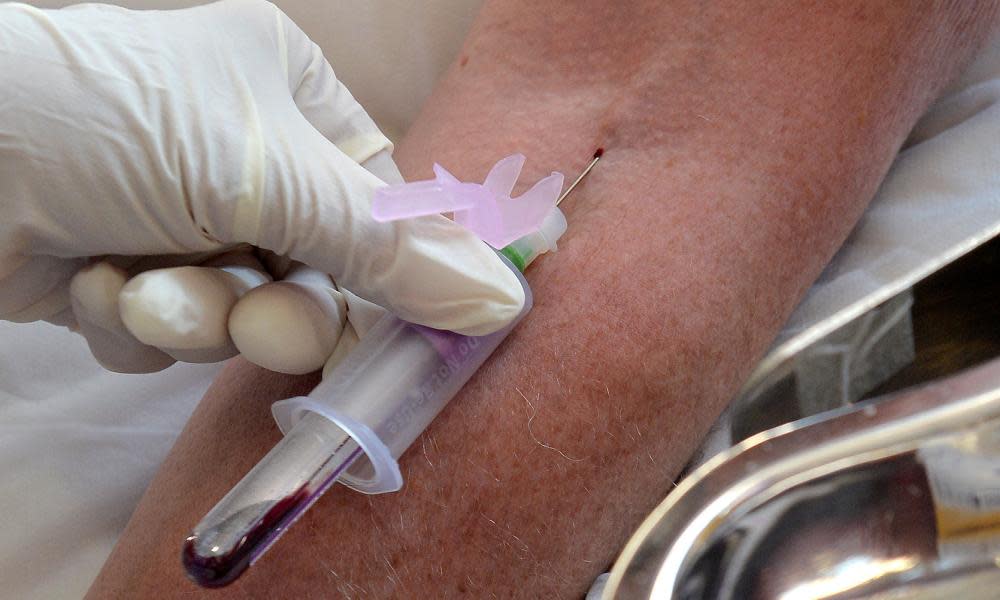Scientists launch search for genetic test to spot killer prostate cancer

Scientists have begun work to create a prostate cancer screening service for the UK. In a few years, middle-aged men could be tested to reveal their genetic susceptibility to the condition, with those deemed to be under significant threat of developing it being offered treatment or surgery.
The service would tackle a disease that has become the nation’s most commonly diagnosed cancer and would parallel Britain’s breast cancer screening programme. Every year, more than 47,500 men are diagnosed with prostate cancer: 129 a day on average. More than 11,500 deaths from the disease occur each year, with one in eight men being diagnosed with prostate cancer at some time in their lives.
A national screening service – which would test men’s saliva for signs of genetic predispositions to the condition – could help to make significant reductions in numbers of cases and deaths. Hence the decision by the government’s National Institute for Health Research to give a £3m grant to Professor Rosalind Eeles, of the Institute of Cancer Research (ICR), and the Royal Marsden Hospital London, to lead research aimed at setting up a prostate cancer genetic testing and screening service.
“There are various gene variants that make men particularly susceptible to prostate cancer, and we need to find out exactly what those are,” Eeles told the Observer. “Then we will be able to develop a set of tests that you could offer to everyone. However, these would have to be cheap and simple to administer.”
Eeles and her colleagues are working to uncover the data and resources that will be needed to roll out a programme of prostate cancer gene testing in the NHS. The group has already pinpointed genetic changes that can lead to prostate cancer and have developed tests to detect them. Now they plan to investigate how best to use these in a screening programme.
To do this, Eeles and her team will give their tests to 1,000 men at risk of prostate cancer and 1,000 men known to have the condition. Results from these will be compared with those from men known not to have prostate cancer and who have no family history. Then the team will check how well the gene tests accurately identify a man’s risk status.
“The overall risk at age 70 of getting prostate cancer is about 3% and at the age of 80 to 85, it’s about 12%,” added Eeles. “What we want to do is find out, earlier in life, who among these groups is most at risk of getting the disease.”
Studies carried out at the ICR and Marsden’s joint Biomedical Research Centre suggest that about 200 different gene variants are involved in raising prostate cancer risks. Most of these variants pose a small danger but in certain combinations these could lead to a high level of risk.
“I can envisage the day when men aged between 40 and 70 could go to their doctors and be given saliva tests and, based on genetic analysis of their spit, they could be told from their genetic profiles just how much at risk they are of getting prostate cancer,” said Eeles.
Related: Prostate cancer 'now most commonly diagnosed cancer in UK'
Men identified to be most at risk of aggressive prostate cancer types could then be offered targeted screening and treatments that are now being developed. The research programme will also look at how men want to receive information about their prostate cancer risk and how it can be integrated into the NHS’s prostate cancer care pathway.
Eeles stressed that such a screening service would take time to perfect. It would have to be cost-effective and simple to implement.
“Ensuring that will be one of the main aims of the research we are now undertaking,” she said. “However, I am very confident that in a few years we may be able to roll out screening based on risk assessments of prostate cancer for middle-aged men in the UK.”

 Yahoo News
Yahoo News 
